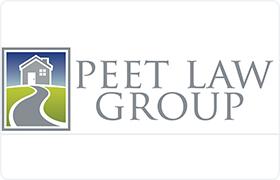Johnson Real Estate Other Lawyer, Vermont
Sponsored Law Firm
-
 x
x

Click For More Info:
-
Law Office of Fred V. Peet
55 Patchen Rd South Burlington, VT 05403» view mapReal Estate Law Vermont’s Real Estate Law Source
The Law Offices of Fred V. Peet, P.C. concentrates its practice on residential and commercial real estate transactions.
800-960-0161
Includes: Commercial Leasing, Commercial Real Estate, Condominiums, Conveyancing, Housing & Urban Development, Premises Liability, Residential Real Estate, Title Insurance
George J Feulner
Commercial Real Estate, Real Estate, Litigation, Business & Trade
Status: In Good Standing Licensed: 52 Years
George J Feulner
Commercial Real Estate, Litigation, Business
Status: In Good Standing Licensed: 52 Years
Scott L. Keyes
Commercial Real Estate, Estate Planning, Corporate, Personal Injury
Status: In Good Standing
Harold B. Stevens
Commercial Real Estate, Commercial Leasing, Complex Litigation, Defamation & Slander
Status: In Good Standing Licensed: 49 Years
Kyle Scott Seabolt
Residential Real Estate, Litigation, Estate Planning, Corporate Governance
Status: In Good Standing
Kyle Scott Seabolt
Residential Real Estate, Estate Planning, Corporate Governance
Status: In Good Standing
 Fred V. Peet South Burlington, VT
Fred V. Peet South Burlington, VT Practice AreasExpertise
Practice AreasExpertise
